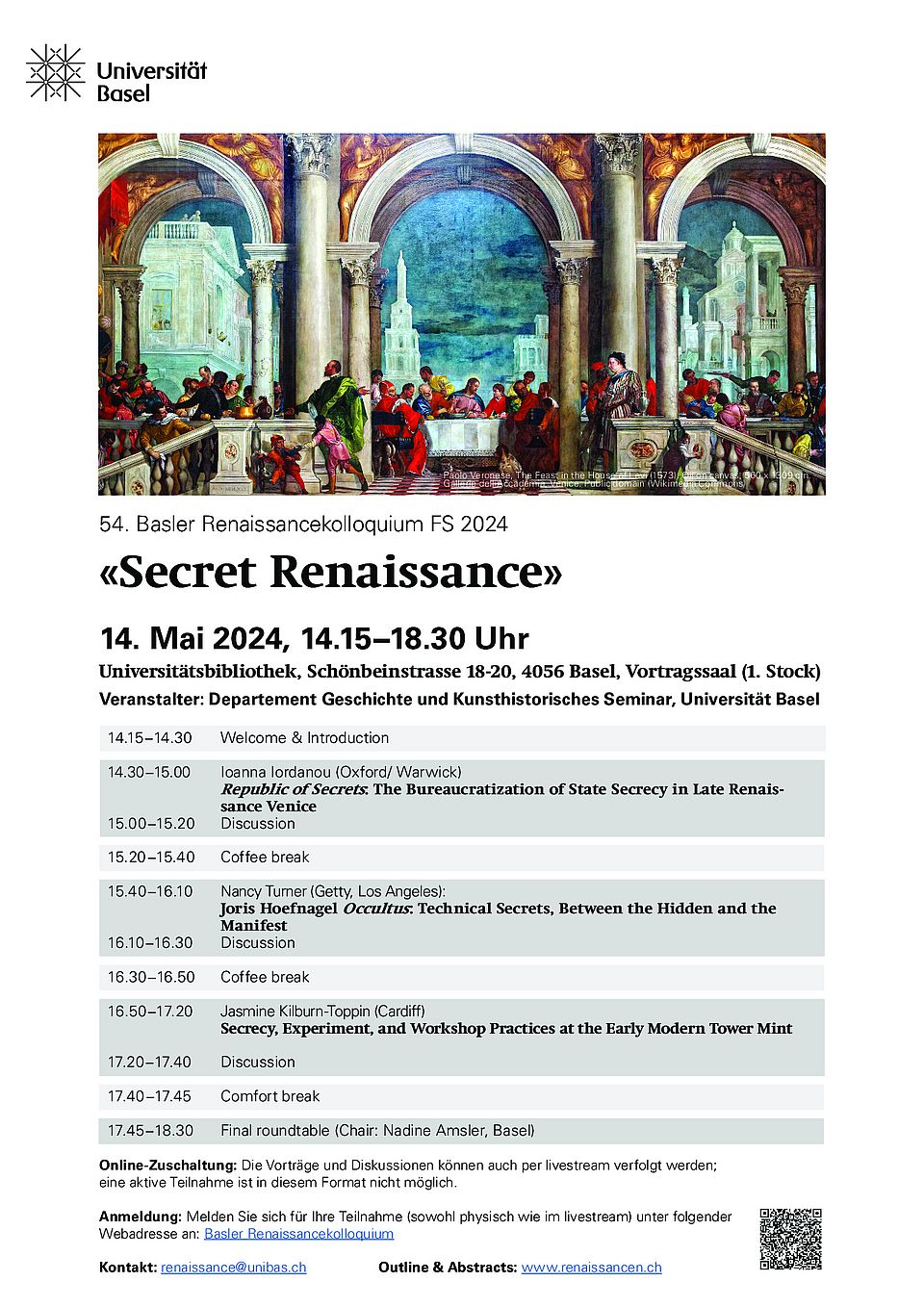Universitätsbibliothek, Schönbeinstrasse 18-10, Vortragssaal (1. Stock)
Veranstalter:
Departement Geschichte und Kunsthistorisches Seminar, Universität Basel
54. Basler Renaissancekolloquium «Secret Renaissance»

In the Renaissance some forms of knowledge were best kept secret. From the artisanal workshop, through trade networks, to the dense social fabric of cities and the politically charged ambience of courts, the sharing of knowledge was always shadowed by practices of concealment, obfuscation, and silence. Within the artist’s workshop and the craft community, as in other family businesses and trading networks, the keeping and sharing of secrets could be both a point of social-familial cohesion and a jealously guarded competitive advantage in the marketplace. In religious life, secrecy also had its place: the seal of confession, the “secret” prayer of the priest at the altar, the secret interior forum of the conscience. Among political elites, regimes of magnificence went hand in glove with forms and practices of secrecy; privy councils, secret negotiations, clandestine diplomacy and espionage. Throughout Renaissance polities, secrets — or the imputation of secrets — also spurred rumor, antagonism, and accusation.
The 54th Basel Renaissance Colloquium aims to inquire into the nature and scope of Renaissance clandestinities with particular respect to their potential dynamics of (re)presentation: was there a specific “Renaissance secrecy” and how does it relate to (at least equally widespread) contemporary penchants for ostentation and display? We propose to conceive of secrecy as a social strategy that manifests itself within performative processes while channelling the emergence and/or development of social and institutional hierarchies.
We thus seek to discuss not only the kinds of knowledge deemed worthy of secrecy, but also the cultural techniques developed to preserve secrets, the values — both positive and negative — assigned to secret knowledge, and the challenges that Renaissance secrecy poses to historical study.
The colloquium will allow for individual presentations of about 30 minutes in length, followed by questions and a final roundtable discussion.
Veranstaltung übernehmen als
iCal
